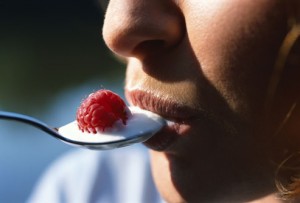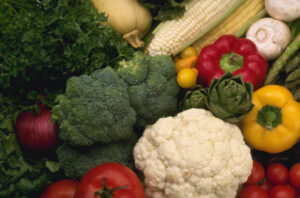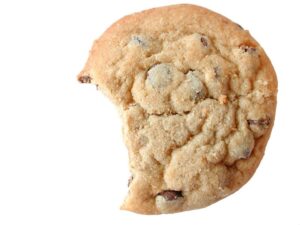Eating Healthy
 People are becoming more and more aware of the connection between diet and health. Research has linked conditions such as obesity and cardiovascular disease to diets high in fat; kidney stones and osteoporosis to diets high protein; diabetes mellitus to diets high in dairy at a young age; and colon cancer to diets low in fiber.
People are becoming more and more aware of the connection between diet and health. Research has linked conditions such as obesity and cardiovascular disease to diets high in fat; kidney stones and osteoporosis to diets high protein; diabetes mellitus to diets high in dairy at a young age; and colon cancer to diets low in fiber.
What may not be so obvious, however, is that a poor diet can also be a contributing factor to such day to day problems as fatigue, headaches, mood swings, indigestion, constipation, skin problems, menstrual discomfort, etc.
The information given below is designed to help you begin making more healthful food choices. Changing life-long, deeply ingrained eating habits can be difficult. As you strive to follow these principles be patient with yourself, keep a sense of humor, enjoy your successes, and do not hesitate to seek out support from others, including your naturopathic physician.
Some Guiding Principles
* Include plenty of fresh vegetables, fruits, whole grains, and legumes. These foods promote health by providing an abundance of fiber, vitamins, minerals, enzymes (if eaten raw), and many other life-giving substances that science is just beginning to discover.
* Include a moderate amount of protein from beans and bean products like tofu, lentils, seeds, nuts, non-fat dairy products, fish, and a lesser amount from meat, poultry, and eggs.
* Try to minimize the fat in your diet, but keep in mind that some fats are essential to health. (See section on fats.)
* Wherever possible, eat foods in their natural rather than processed form. For example, fresh vegetables have more food value than frozen vegetables, which in turn have more food value than canned vegetables.
* Wherever possible, choose organic over non-organic foods. Foods grown non-organically often contain pesticides and other chemical residues that have been linked to certain cancers. Organic farming also helps preserve farmland and decreases contamination of ground water.
Foods to Include
*  Whole Grains: Brown rice, millet, oats, buckwheat, barley, quinoa, amaranth, corn, whole wheat, spelt, kamut, teff. (Check with your local natural foods store for information on these grains.)
Whole Grains: Brown rice, millet, oats, buckwheat, barley, quinoa, amaranth, corn, whole wheat, spelt, kamut, teff. (Check with your local natural foods store for information on these grains.)
* Legumes: All dried beans – navy, white, black, mung, garbanzo, pinto, etc.; lentils, split peas, tempeh and tofu.
* Vegetables: Broccoli, cauliflower, beets, beet greens, spinach, chard, red and green cabbage, squash, kale, carrots, sprouts, etc.
* Fruits: Apples, berries, melons, grapefruit, oranges, kiwi, etc. Fruit and vegetable juices can be used for therapeutic purposes such as during a cleansing fast. However, most juices are high in simple sugars and devoid of fiber. One can decrease the concentration of sugar by diluting juice 1:1 with water. Choose the whole fruit or vegetable instead of the juice whenever possible.
* Nuts/seeds: Walnuts, almonds, hazelnuts, pecans, brazil nuts, sunflower seeds, and sesame seeds. Because of their high fat content, use nuts and seeds in moderation. It is also important to be aware that commercially “roasted” nuts have often been deep-fried.
* Fish: Salmon, cod, trout, tuna, mackerel, ahi, etc. Fresh salmon is an especially good source of a healthy oil called eicosapentaenoic acid (EPA).
* Dairy products: Some people are intolerant or allergic to dairy products. However, if you tolerate them well, choose non-fat diary products. “Low-fat” dairy still contains a significant amount of fat, as with 2% milk that still derives 25% of its calories from fat. Unsweetened, non-fat yogurt is an especially good choice and is protective against several diseases.
* Meat and poultry: Due to the high fat content of most meats, they are best used sparingly. Skinless turkey breast is lowest in fat. Buy organically fed or free roaming meat, poultry, eggs and beef because they do not contain the hormones and antibiotics present in most animal feed. Be sure to choose meats that do not contain nitrates or nitrites as these have been linked with stomach cancer.
* Fats and oils: See special section on fats and oils below.
* Salt and Spices: Increased salt intake has been linked to high blood pressure and fluid retention. Humans require between 2-5 grams of salt per day (5 grams equals 1 tsp.). Most Americans consume in excess of this amount. Therefore, salt and salty seasonings like soy sauce, tamari, Bragg’s Liquid Aminos, and miso should be used in moderation. Garlic, lemon juice, fresh herbs, and other spices can be used liberally.
Foods to Avoid
*  All concentrated sweeteners, including white and brown sugars, honey, maple syrup, molasses, barley malt, rice syrup, and fruit-juice sweeteners break down very quickly in the body and cause a rapid rise in blood sugar. They should be used very sparingly. Fructose does not lead to a quick increase in blood sugar, but is associated with other problems. Avoid artificial sweeteners like Nutrasweet – not enough is known about the safety of these substances.
All concentrated sweeteners, including white and brown sugars, honey, maple syrup, molasses, barley malt, rice syrup, and fruit-juice sweeteners break down very quickly in the body and cause a rapid rise in blood sugar. They should be used very sparingly. Fructose does not lead to a quick increase in blood sugar, but is associated with other problems. Avoid artificial sweeteners like Nutrasweet – not enough is known about the safety of these substances.
* White flour products like bread, pasta, and pastries (use whole-grain breads and pasta instead).
* Stimulants like coffee, black tea, and soft drinks.
* Processed and fast foods which are usually low in fiber, high in fat, sugar, and salt, and contain chemical colorings, fla
vorings and preservatives.
Fat Facts
To ensure that you are getting sufficient good-quality oils in your diet, follow the following guidelines:
* Avoid commercial oils found in supermarkets. Most have been heavily processed and have had some oxidative damage and vitamin depletion.
* Avoid margarine, Crisco, and other hydrogenated fats. Trans fatty acids formed in the process have been linked to cardiovascular disease.
* Purchase expeller-pressed (or cold-pressed) vegetable oils such as corn, sunflower, sesame, and canola, preferably in their unrefined form. To help preserve the oil, add a few drops of liquid vitamin E and store it in the refrigerator. Olive oil can be stored on the shelf.
* Prepared foods and salad dressings do not contain expeller-pressed oils unless stated on the label. Therefore, use them in moderation.
* Cook only with olive oil or organic butter that resist oxidative damage during cooking.
* Try using a squirt bottle with olive oil or sesame oil to cover your wok or frying pan. This decreases the amount of oil needed to cook.
Examples of Healthy Main Meals
Health oriented cookbooks and magazines contain many ideas for healthy meals. Try some of these simple combinations for lunch or dinner:
* A seasoned vegetable stir-fry with a few cashews or walnuts over a bed of grains (rice, millet, quinoa, and buckwheat are good choices).
* A corn tostado layered with refried beans (low-fat varieties are available), sliced avocado, salsa, and topped with shredded carrot.
* Lightly baked or broiled salmon with lemon and olive oil drizzled on top, and a steamed vegetable on the side.
* A whole wheat pita-bread sandwich stuffed with hummus (a Middle-Eastern dish made from pureed chickpeas and sesame butter; available at most natural foods stores), sliced black olives, lettuce, and sprouts.
* A large raw salad with marinated tofu (available in natural foods stores) and dijon vinaigrette dressing.
Cookware
Avoid aluminum cookware. Aluminum tends to accumulate in brain and nervous tissue and may be implicated in Alzheimer’s disease. Safe cookware includes stainless steel, Pyrex glassware, and cast iron skillets.
Your diet is only part of the health equation. We all need to consider specific organ health, spiritual health and good mental well-being.
If you are ready to take a chance and change your health with easy and concrete solutions, schedule an appointment and lets make medicine and health a strong realty in your life.
Call me 970-889-3541 or email me or admin@drkeribrown.com. I look forward to working with you.
